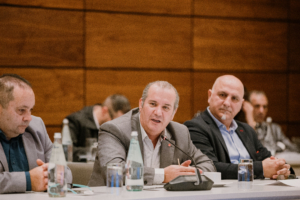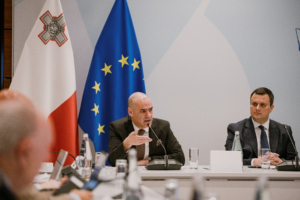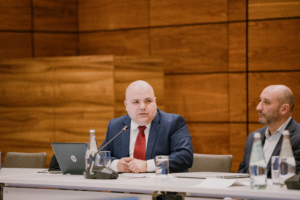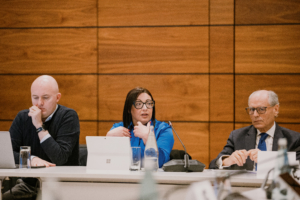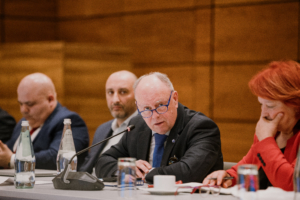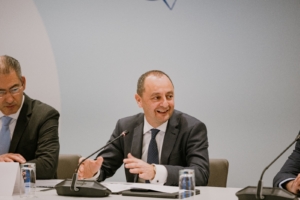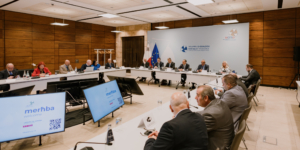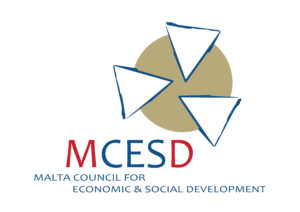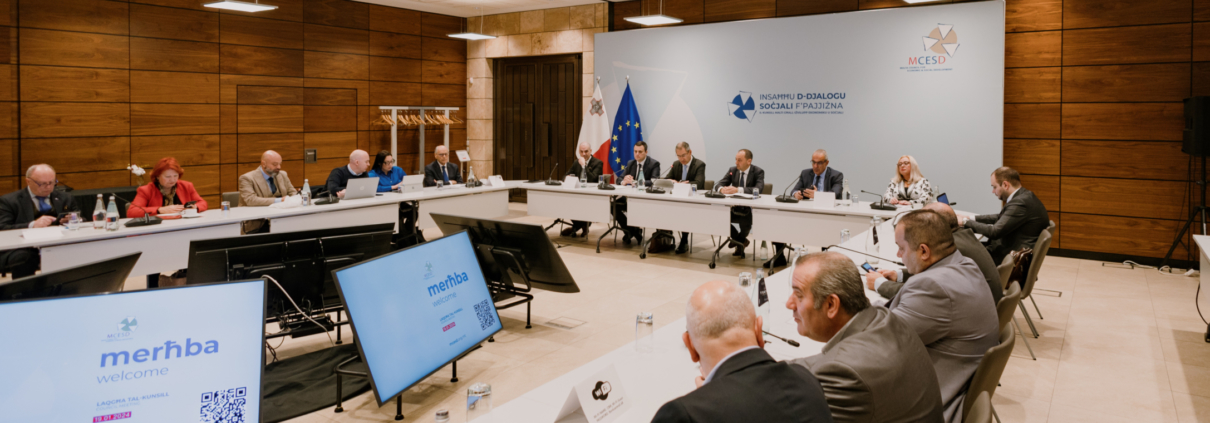The MCESD Council Addresses permitting of Quality Foreign Workers, Employment Law, Temping Agencies, and Public-Private Partnerships
During the second MCESD Council for this year, social partners provided their diverse reactions and recommendations on the discussed prioritised agenda. Parliamentary Secretary Andy Ellul stated, “This meeting represents the highest level of Social Dialogue and ongoing coordination between social partners and the government, fostering an environment conducive to simplifying processes within the dynamic realm of the workforce.”
The first part of the meeting delved into the updated process of engaging foreign workers from outside Europe, ensuring their quality and the requisite skills that reflect the needs of our country. To apprise social partners of the national significance of this matter, the MCESD welcomed Colonel Mark Mallia, the CEO of Identità, along with Hon. Byron Camilleri, the Minister for Home Affairs, Security, Reforms, and Equality; Hon. Andy Ellul, the Parliamentary Secretary for Social Dialogue; and Ms. Diane Vella Muscat, the Director General of the Department for Industrial and Employment Relations (DIER).
The objective was to inform social partners about the renewed and rigorous procedures before accepting foreign workers, known as Third Country Nationals (TCNs), to become part of the national economy. In Colonel Mark Mallia’s presentation to the MCESD Council, he elaborated on the Agency’s efforts to streamline the permit application process for foreign workers, aiming to attract high-quality professionals. The collaborative efforts with The Malta Police for due diligence on national and public security and with Jobs Plus for market testing and labour market control were highlighted. Prospective skill cards for the hospitality sector and a more stringent regulatory framework for foreigners driving Y-plate cars were explained.
Ms. Diane Vella Muscat, the Director General of the DIER, presented information on the Employment Agencies Regulations (Temping Agencies). These regulations and quality standards, previously absent, are set to bring significant changes. Ms. Vella Muscat explained the rationale behind these regulations, surpassing EU directives to establish holistic safeguards for employment and temping agencies. The legislation standardises and regulates agency operations, ensuring ethical recruitment practices and a zero-tolerance approach to worker exploitation. With rigorous standards and penalties, our primary goal is to protect workers, optimise the match between jobseekers and vacancies, and contribute to sustainable economic prosperity. The role of social partners is crucial in disseminating information to their members and ensuring the effective and quality implementation of such laws, explained the Director General.
In making recommendations for essential enhancements to attract quality and talented workers to participate in the national economy, the social partners not only recommended necessary improvements but also acknowledged the role played by both Identità and the DIER.
In the second part of the meeting, the Auditor General, Mr. Charles Deguara, was welcomed to the MCESD. After an in-depth study of happenings in our country and abroad, the focus was on recommendations for successful public-private partnerships, combining private investment and government assets to offer opportunities for economic and social development. The discussion included analyses of good practices, areas for improvement, and lessons learned from practices abroad. Recommendations were formulated for evaluating opportunities arising from private-government collaborations to ensure the optimal use of taxpayers’ money for the benefit of society and the economy.
- Access the presentation given by Identità from here:
- Access the presentation given by the DIER from here:
- Access the presentation given by the NAO from here:
Photos:
